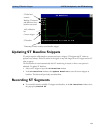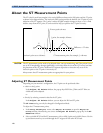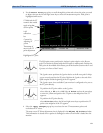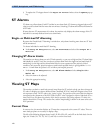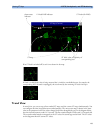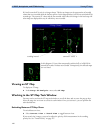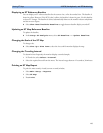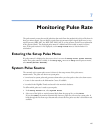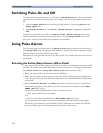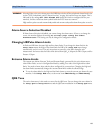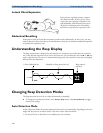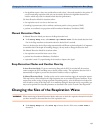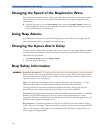
127
7
7Monitoring Pulse Rate
The pulse numeric counts the arterial pulsations that result from the mechanical activity of the heart in
beats per minute (bpm). You can display a pulse from any measured SpO
2
signal (pleth wave) or any
arterial pressure (ABP, ART, Ao, BAP, FAP, PAP, UAP, P: see the pressure section for an explanation
of the pressure labels). The displayed pulse numeric is labeled and color-coded to match its source
wave. If the pulse numeric is not displayed, see the
Setup Pulse menu to check whether it is
switched on.
Entering the Setup Pulse Menu
If a pulse numeric is displayed on the screen, select it to enter the Setup Pulse (Pulse Source)
menu. If no pulse numeric is visible, in the Setup SpO
2
menu or an Setup arterial pressure menu,
select
Pulse (Pulse Source).
System Pulse Source
The currently active system pulse source is shown in the setup menus of the pulse source
measurements. The pulse rate chosen as system pulse:
• is monitored as system pulse and generates alarms when you select pulse as the active alarm source
• is sent via the network to the Information Center, if available
• is trended in the HighRes Trends and stored in the monitor’s databases.
To define which pulse rate is used as system pulse,
1 In the Setup Pulse menu, select System Pulse.
2 Select one of the SpO
2
or arterial pressure labels from the pop-up list, or select Auto.
If you select Auto, the monitor automatically chooses a pulse rate to be used as system pulse. It
looks through the list from top to bottom and activates the first pulse rate that is switched on and
available.



